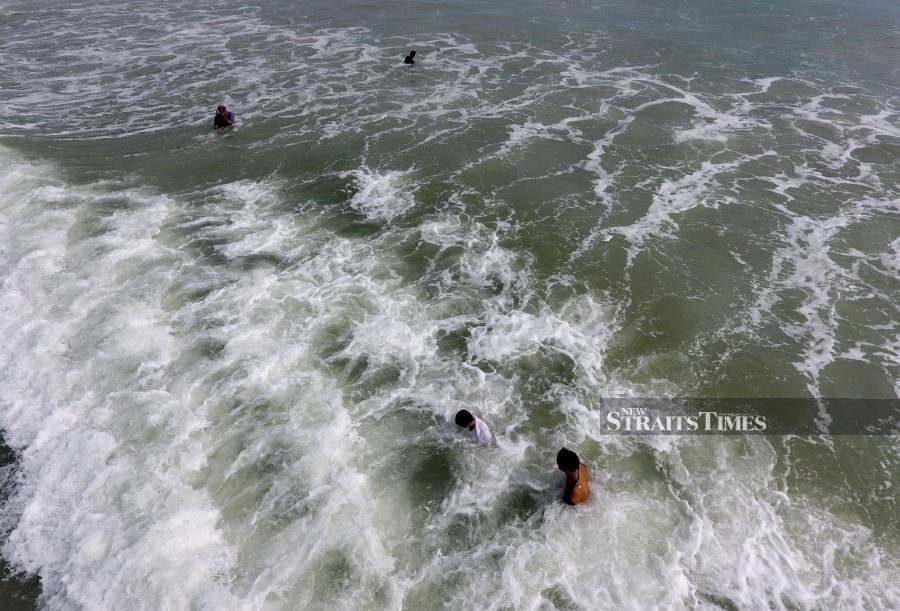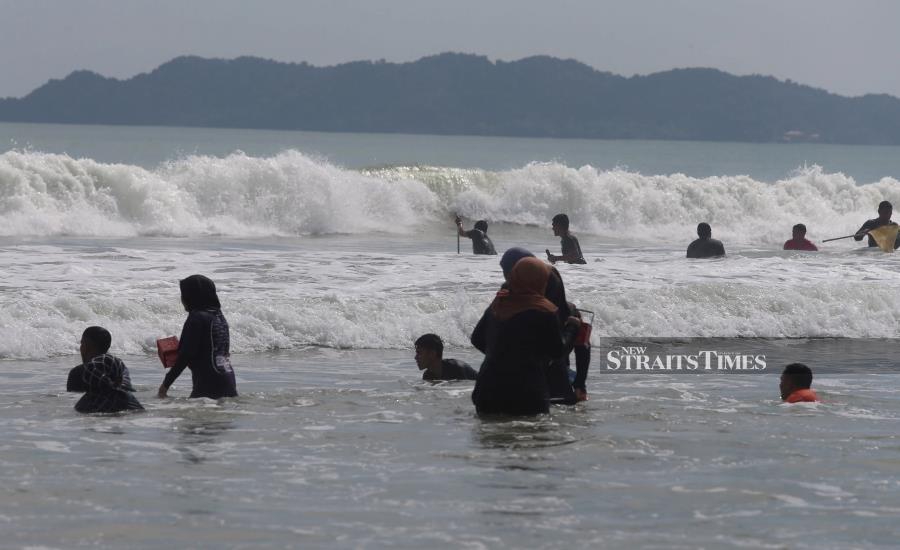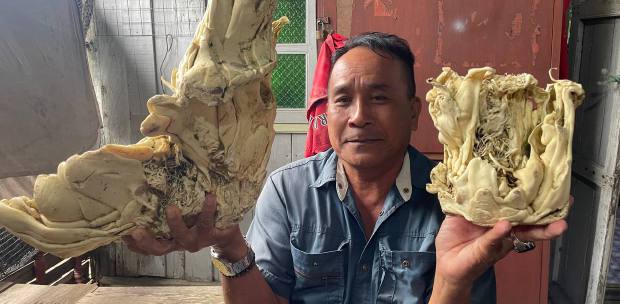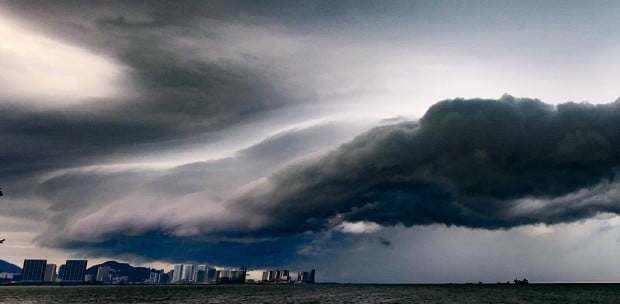MARANG: The arrival of the northeasterly with a wind speed of up to 50kph and high waves is usually not a good time for anyone to look for clams in waist-deep water near the beach.
But, some folk are willing to take the risk to collect bivalve molluscs, which are priced at RM5 per kg.
Children, youths and seniors seemed to be oblivious to the danger posed by strong undercurrents and high waves along Rhu Muda beach, as they ventured to gather as many clams as they could before the high tide set in.
The clams were collected from the shallows using scoops and rakes, but for a better yield, some would go deeper into the water.
The more adventurous clam collectors would dive in and rake the seabed.
State Civil Defence Force director Lt-Col (PA) Che Adam Abd Rahman said the public should be aware of the risks they faced when gathering the clams in such adverse conditions.

“We are aware that the activity has been going on for about a week and people want to make the most during this weather phenomenon which only occurs once a year,” he told the New Straits Times.
“Tomorrow we expect the arrival of the northeasterly which will last until Saturday and I strongly advise the public not to venture out to sea or try to collect clams along the beach, because they can be easily swept away by strong waves and currents.
“It is not worth collecting the clams with life-threatening risks.”
Che Adam said his men would be patrolling along the Rhu Muda beach and other popular recreational beaches in the state to warn the public about such dangers.






